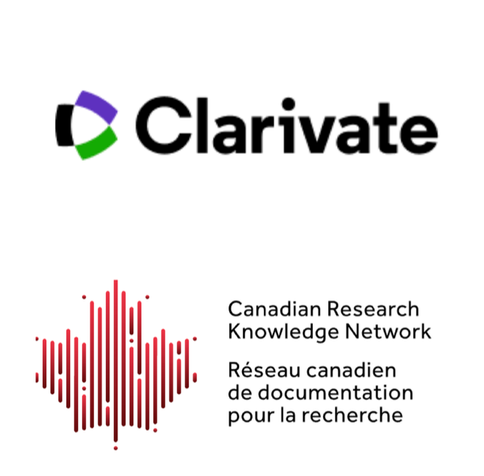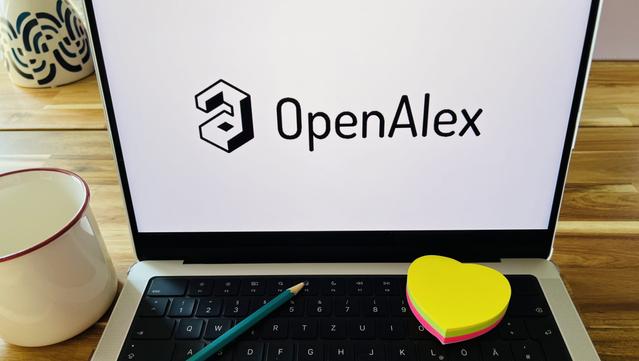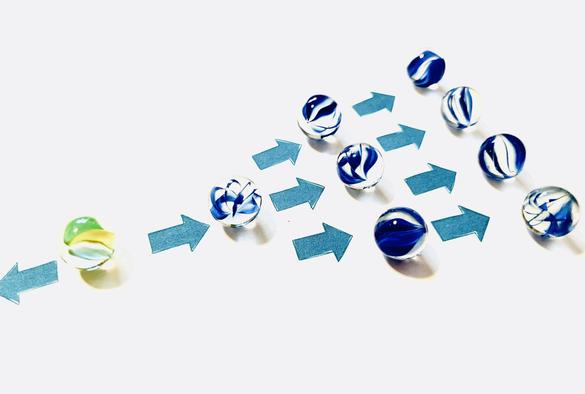#OpenAlex https://openalex.org/
Interesting open-access alternative to scientific literature databases like #WebOfScience and #Scopus
#Science #OpenAccess #AcademicPublishing
From: @tub
https://openbiblio.social/@tub@openbiblio.social/114559706766379637
Googlen könnt ihr. ✔️ Für die systematische Suchen sind #Datenbanken dann die nächste Challenge. #WebofScience und #scopus sind hierfür wichtige Angebote von Verlagen, die wir für euch finanzieren.
Aber es gibt auch eine freie Alternative. Florian stellt euch #OpenAlex vor. Wir sind gespannt auf eure Erfahrungen.
Stable pattern with #webofscience and #Scopus
Current emphasis on #opensource
Are we entering the great wide open, or will established proprietary databases remain a dominating source?
https://www.infodocket.com/2025/05/16/journal-article-data-sources-used-in-bibliometrics-1978-2022-from-proprietary-databases-to-the-great-wide-open/
Journal Article: “Data Sources Used in Bibliometrics 1978–2022: From Proprietary Databases to the Great Wide Open”
The article linked below was recently published by JASIST (Journal of the Association for Information Science and Technology). Title Data Sources Used In Bibliometrics 1978–2022: From Proprietary Databases To The Great Wide Open Authors Camilla Hertil Lindelöw Swedish School of Library and Information Science, University of Borås, Borås, Sweden Björn Hammarfelt Swedish School of Library […]
Nuevas formaciones online gratuitas y en español 👇
I Ciclo de Formación Online #WebOfScience
📅20, 21 y 22 de mayo
✅Interpretar los indicadores de citas de JCR
✅Currículum Vítae Normalizado de FECYT
✅Leer el perfil de una revista en JCR

I Ciclo de Formación Online de la base de datos Web of Science (WoS) (20-22 de mayo de 2025)
La FECYT, junto con Clarivate, ha organizado durante el mes de mayo, tres nuevas jornadas de formación online gratuitas y en español, enmarcadas en el I Ciclo de Formación Online de la base de dato…
Systematische Suche nach Literatur? Hierfür gibt es Fachdatenbanken.
Zur Recherche in der wichtigen fachübergreifenden Datenbank Web of Science haben wir euch ein paar Tipps zusammengestellt gestellt.
#Literatursuche #WebofScience
📢 Seminar: Quantitative Auswertung von Daten
📅 4. + 6. März, 9:30-13:00
📍 Online mit Dr. Dirk Tunger
🔍 Lernen Sie, Publikationsdaten mit #WebofScience + #Scopus auszuwerten – auch ohne eigene Lizenzen. Fokus auf praktische Übungen mit bereitgestellten Datensätzen und Vergleich zu kostenfreien Alternativen wie #googlescholar Ideal für Bibliotheksmitarbeiter*innen, die häufige Anfragen zu Publikationsanalysen bearbeiten.
🔗 Anmeldung + Infos: https://dgi-info.de/event/quantitative-auswertung-von-daten-aus-web-of-science-und-scopus-fuer-bibliotheksanwendungen/
Good news for all TATuP authors: We have been indexed in #WebOfScience - retroactively beginning from issue 31/1 (2022)! 🚀🌐
Many thanks to all our reviewers and our publisher oekom verlag for their support! 🙏
Des désabonnements pour mieux soutenir la science ouverte
Dans la lignée de plusieurs établissements français (1*) ayant fait le choix en 2024 de renoncer à certains abonnements numériques phares, Nantes Université a décidé de ne pas renouveler en 2025 ses abonnements à la base de données Web of Science et aux revues Wiley.
Earlier this week an opinion piece authored by me and a number of great colleagues was published on the @upstream blog. Our piece introduces criteria for innovation-friendly bibliographic databases https://doi.org/10.54900/d3ck1-skq19.
We express our deep concerns about the treatment of @eLife by the #WebOfScience and #Scopus databases. We see this as an example of databases hindering rather than supporting innovation in scholarly communication and research assessment.

Criteria for Bibliographic Databases in a Well-Functioning Scholarly Communication and Research Assessment Ecosystem
Bibliographic databases should support innovation and experimentation. Here, we offer four criteria for innovation-friendly bibliographic databases. We urge the global research community to use databases that support and do not hinder innovation in scholarly communication and research assessment.




